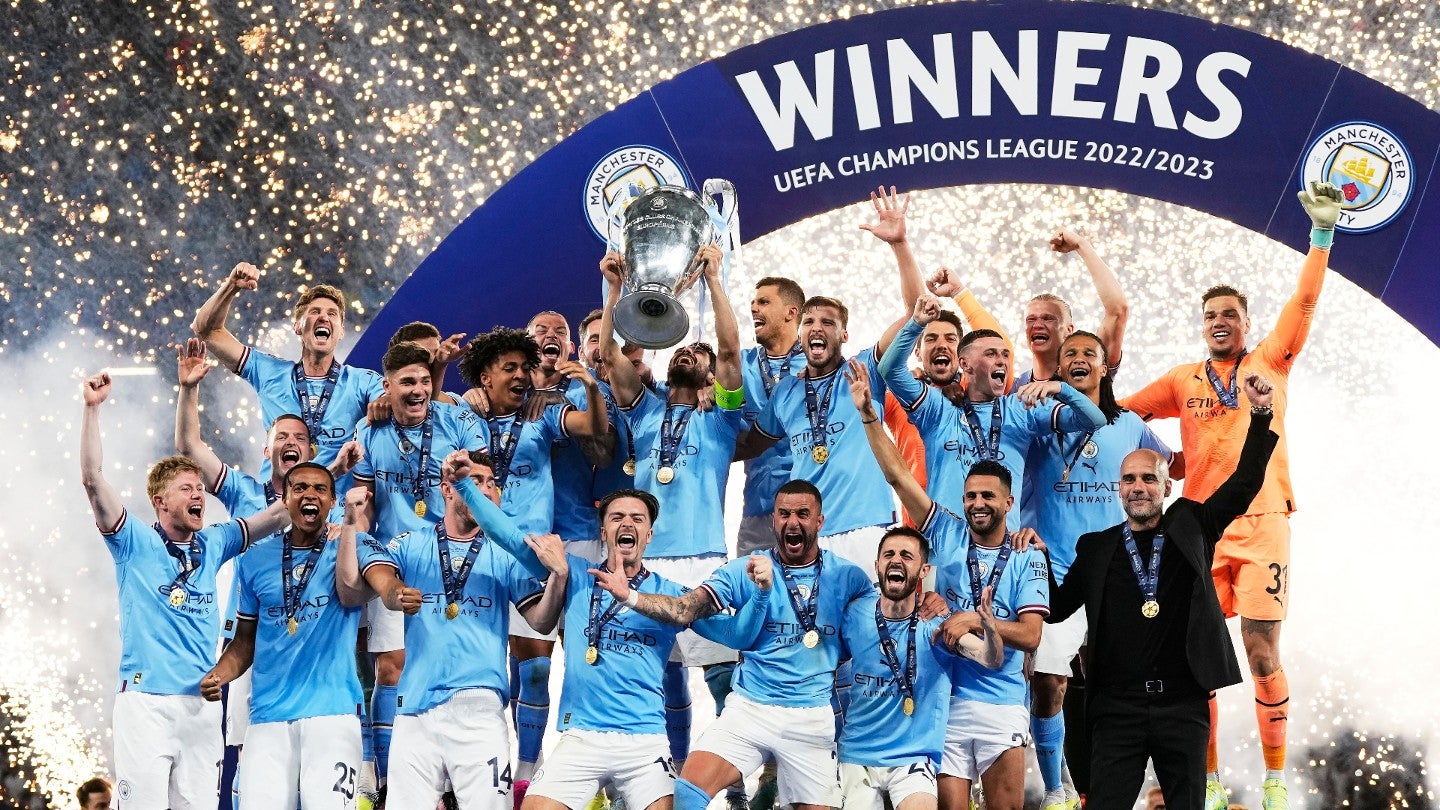
English Premier League (EPL) soccer champions Manchester City have acknowledged the risk of the financial charges facing them even as the club posted record revenues of £712.8 million ($883.4 million) in the year ending June 30.
City’s annual report for the 2022-23 season, released on Wednesday (15 November), foregrounded “an increase [in revenues] of £99.8 million, or 16.3%, over the prior year”. Net profit also rose from £41 million to £80 million.
However, the report also admits a “number of risks and uncertainties which could have a material impact on the club’s performance”, namely the “number of alleged breaches of the Premier League rules by Manchester City”.
City’s “smokescreen” of inflated income
Eyebrows have also been raised over City’s declared commercial income of £341 million, with allegations of City's ownership signing inflated sponsorship deals with affiliated companies from 2009 to 2018 among the EPL’s list of charges.
“There have been a number of incidents of brands or spokespeople associated with partner brands not existing,” comments Conrad Wiacek, head of analysis at GlobalData Sport. “Many have painted City's commercial strength as a smokescreen and a means of Emirati state ownership pumping money into the club to circumvent financial fair play (FFP) rules.”
For context, City’s commercial revenue streams significantly outdo closest rivals Manchester United ($464 million), Real Madrid ($338 million), and Liverpool FC ($298 million), according to the Deloitte Money League, which ranks clubs financially.
City previously received a two-year ban from the Champions League, which it won for the first time in the club’s history last season, for benefitting from inflated sponsorship deals funded by owner Sheikh Mansour.
The ban was eventually overturned after an appeal at the Court of Arbitration for Sport.
Everton face FFP backlash; Abramovich investigated further
City’s proclamations of financial and sporting superiority ring hollow as the club braces itself for the EPL’s verdict.
The league has faced an onslaught of criticism for fast-tracking Everton’s legal case – which began in March, a month after City’s, over one charge of violating FFP rules.
It has today (November 17) been announced that Everton have received an immediate 10-point deduction – a very possible relegation sentence that calls into question the severity of City’s punishment should even a small number of the 115 charges be evidenced in a court of law.
Further light was shed on the murky world of EPL finance following the release on Tuesday (14 November) of the ‘Cyprus Confidential’ investigation, which alleged that payments made during Roman Abramovich's ownership of Chelsea were “routed through offshore vehicles” belonging to the Russian billionaire and long-time Vladimir Putin ally.
The investigation was carried out by the International Consortium of Investigative Journalists (ICIJ) and 68 media outlets.
Sports lawyers that reviewed Cyprus Confidential documents said Chelsea are unlikely to escape punishment for FFP violations.
This will fuel the EPL’s legal saga against Manchester City, the outcome of which will define the sport for a generation.
Scrutiny is rising towards the ethicality and legality of EPL clubs being run by entire nations and their sovereign funds – from the United Arab Emirates’ (UAE) Emirates Investment Authority controlling Manchester City to Saudi Arabia’s Public Investment Fund, which acquired Newcastle United for £305 million ($415 million) in 2021.
Like Saudi Arabia, the UAE cracks down on all political dissent, regularly violates human rights, and has allegedly committed war crimes in the ongoing conflict in Yemen.
Leading sporting bodies are under increasing pressure to clamp down on sportswashing, a primary conduit through which such regimes legitimize crimes against humanity – and the illicit financial practices enabling it.
“City, [Sheikh] Mansour, and the Emirates Investment Authority may have managed to avoid punishment up to this point,” says Wiacek. “But all eyes are now on the Premier League to resolve the ongoing issues around City's commercial practices.”



